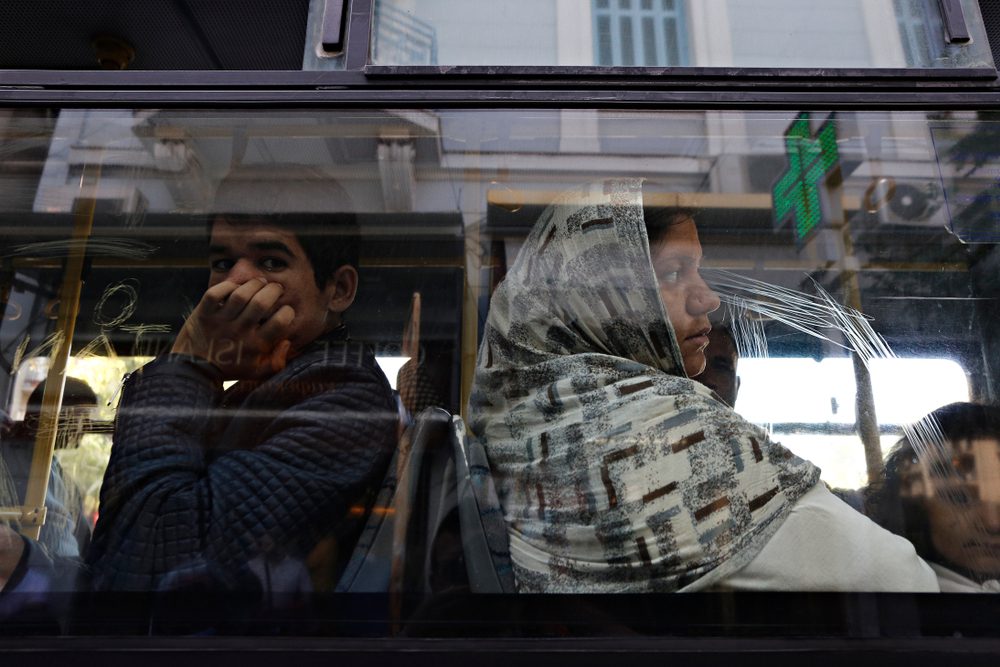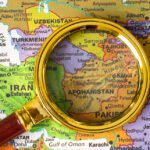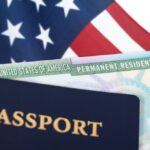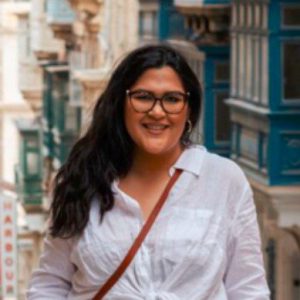I recall sitting in my bedroom-turned-home-office in Washington, D.C., last August feeling distraught watching the news coming out of Afghanistan. Like most Afghan-Americans during that time, a sense of helplessness had washed over me. I wished I could do more.
At the time, I was working at the International Rescue Committee (IRC) as a Gender Equality Program Manager. I reached out to colleagues to inquire about how I could support our response work, and within 24 hours, I was at a site in Virginia where a team had already begun Special Immigrant Visa (SIV) processing operations. I intended to only be there for two weeks.
The very next day, we learned that Kabul had fallen to the Taliban, and we were unsure what would happen next. The information we received was rapidly evolving, as our mission transitioned from SIV processing to an emergency evacuation response. The days and months that followed were transformational for me both personally and professionally.
At the base in Virginia, I was asked to meet a group of Afghan arrivals at the airport and escort them back to site by bus; these arrivals had been on the last SIV flight that left Hamid Karzai International Airport in Kabul before its fall. By the time they landed in the U.S., the situation at Kabul airport was massively different from when they left the tarmac.
I will never forget that bus ride. It was long, somber, and quiet. There were tears, medical emergencies, and other derailments. I sat at the front of the bus near a family of five. The mother was cold and asked for a blanket, so I offered her my sweater. She was a doctor, and her daughter was in medical school. They had many questions about life in the United States, especially about whether they’d be able to continue their work and studies in medicine.
As I chatted with the family, I apologized for speaking to them in my broken Dari and explained that I was born in the United States and my Dari was a bit rusty. I’ve always struggled with my mother tongue. Despite Dari being my first language, it’s no longer my strongest. Sometimes in my community, I am met with jokes or small jabs about how I am not “Afghan enough.” But this family and many others I interacted with in the months that followed expressed a level of gratitude that was foreign to me for being able to communicate, even a little bit, in their language, our language.
There were many other days like this… long ones, emotional ones, motivating ones. The stories were endless: stories of harrowing experiences at the airport, stories of triumph, stories of mothers without their children or children without their mothers. So many stories, none of which are mine to tell.
My identity lies squarely on the hyphen between Afghan and American. Over the years, I’ve struggled to feel a strong sense of community with either one of those groups—but the response awakened a sense of duty inside of me that was transformational. Our work certainly extended beyond the hours of 9 to 5, but being Afghan-American is 24/7.
Our late nights of work were followed by community organizing, calls to discuss advocacy efforts, and doing our best to stay positive and motivated to continue our work. My peers and I stepped up in ways I didn’t even know were possible. I let go of the self-doubt, fear of how others perceived me, and any feelings of inadequacy. I acted in the only way I knew how in that moment—with purpose.
After that first long day on the bus where I spoke to the family of doctors, I spent several days at another site near the airport in Virginia where the first emergency evacuation flights were landing. My short-term deployment was coming to an end, and I made the decision to leave my position as a Gender Equality Program Manager with the IRC to remain active with the Afghan response. This was a decision I struggled with because I knew my role in the Afghan response was temporary and would eventually end when the evacuation did, but I knew this was the direction my heart was taking me in.
After a couple weeks in Virginia, I took a bus to New Jersey to one of the eight Operation Allies Welcome (OAW) safe havens, where I spent the next six months working alongside an amazing team. There, we built programming from the ground up and supported over 15,000 evacuees through their processing until they were ready to depart for their final resettlement destinations.
On a cold day in February, we waved goodbye to the final buses of Afghan guests departing the safe haven. As I stood there with my colleagues who had turned into family, I felt an immense sense of gratitude. I also wondered about what was next—both for the Afghans resettling in their new communities and, selfishly, for myself. What was next for me? So much of my life had changed, including my goals and aspirations.
From March through September, I continued to offer support during Phase 2 of the Afghan Evacuation in Virginia. During my first week there, while setting up program spaces and exploring the new facility, I was stopped in the hallway by a woman working for a different organization. She asked, “Yasmine, is that you?” In my slightly improved Dari, I stated, “Yes, it is. Can you please remind me how I know you?”
She responded, “My name is [X]. You let me borrow your jacket on the bus from the airport.”
Everything came rushing back to me as if I were sitting on that bus again with the doctor and her daughter. We caught up. She shared that her kids were in school, and it was evident that she was doing well and helping other Afghans resettle. We reflected together for a while on how much had changed. I simply don’t have the words to fully articulate how I felt when she looked me in the eyes and responded to my onslaught of questions with, “We are ok, everything is ok.” In that moment, I let go of any doubt about whether I’d made the right choices.
As Afghans and Afghan-Americans in refugee resettlement, we carry the weight of our own complicated relationship to the work we are doing. For me, my “why” involves my parents who fled Afghanistan four decades ago—to honor the sacrifices they made for me.
I now have a stronger sense of self as an individual and as a professional, and a stronger sense of belonging in my community. In many ways, I’ve accomplished my dreams. I know that regardless of what is next, I am so grateful to have done work that feeds my soul and feel lucky to have been afforded these opportunities.










